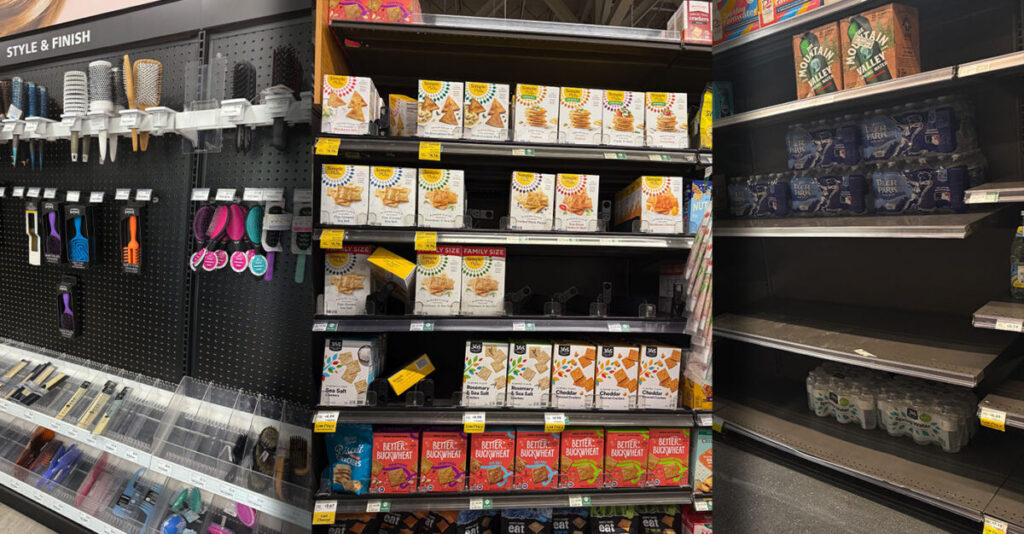By April Ryan
“Anything that raises consumer prices on necessities will hit Black Americans hard,” says Marc Morial, President and CEO of the National Urban League.
This week, a Senate resolution to reverse President Trump’s tariffs on imports failed in a vote of 49-49. Rhode Island Democratic Senator Sheldon Whitehouse missed the vote as he returned from South Korea, and Republican Mitch McConnell did not vote.
According to McConnell’s staffers, he has been “consistent in opposing tariffs.” Recently, Target and Walmart’s CEOs signaled to President Trump that their store shelves could soon be empty due to tariffs. Marc Morial, President and CEO of the National Urban League, has already heard of store shelves becoming bare as the shortage could resemble the problems like the COVID supply chain chinks a few years ago.

After hearing from economists, Morial says, “We’re going to have empty shelves by mid-early to mid-May because what’s happened is all of the vessels from China are turning around and going back.”
So many products on store shelves are from around the world, including bananas and Mangos. The Main Suppliers of Fresh Bananas to the US market are Guatemala, Ecuador, Costa Rica, Colombia, and Honduras.
In 2010, these five countries shipped 94 percent of U.S. banana imports. 86% of the mangos imported to the United States are imported from Mexico.
Regarding essential items, Morial contends, “Think about water, think about diapers. Think about toilet tissue, think about eggs, and paper towels, a lot of these paper products come from Canada…Other things come from China. Those things are not made in the United States…Because the type of wood that is used for toilet paper is more plentiful in Canada, is what I understand.”
The expectation is that tariffs will make many items more expensive, potentially leading to price gouging and the sale of items on the black market. Meanwhile, Morial has also ranked the number one item Black Americans consume. Grits are milled chiefly in the southern United States. Second, on the list is anything for hair manufactured in the United States, Africa, China, and the United Kingdom.




